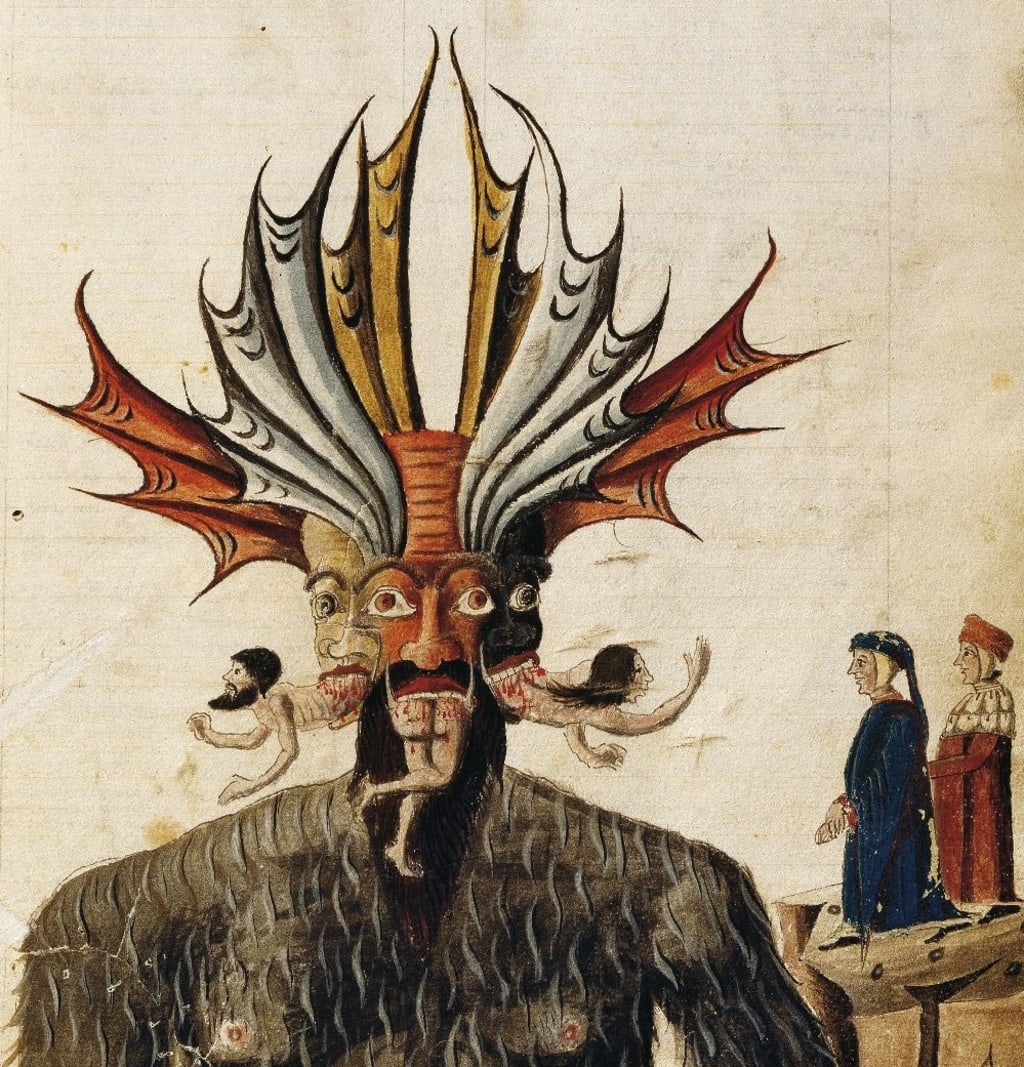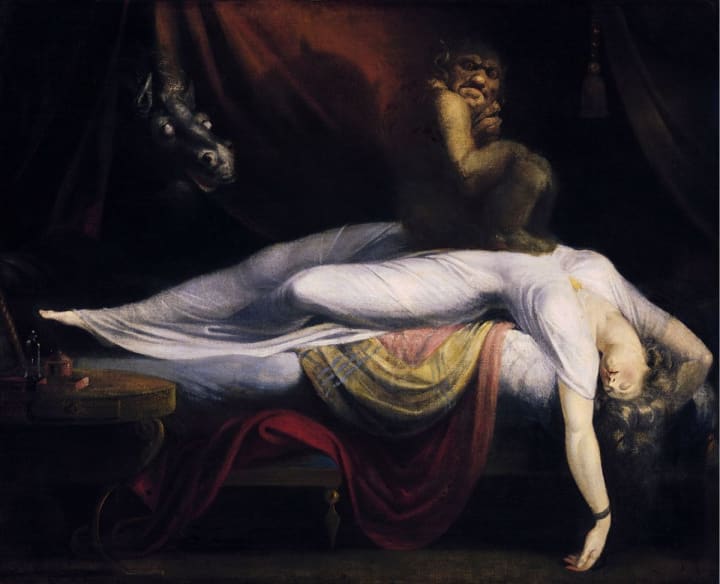"Doctor Faustus" by Christopher Marlowe
A Reading Experience (Pt.17)

I first read this book when I was twelve years’ old and I’m going to admit that it was very difficult to read, even as a girl who had already studied Shakespeare by that age - I had some difficulty and had my dictionary on hand and my Latin dictionary on hand when they were required. I discovered this book literally because I found it. When I say I found it I mean that I was looking through the Shakespeare books and it was amongst them. I thought it looked fairly interesting and so I picked it up and began to read. I understood nothing and so, I took it home to the comfort of my dictionaries. For the next twelve years, I would read “Dr. Faustus” at least once every year because of the fact it had enthralled me and I was always one of those people who were trying to work out whether I was seeing an actual ending or one of the possible endings to the play. It’s an intriguing script with a ton of grand references, speeches and monologues. I love the entire thing and to this day, it is my favourite play of all time.
My favourite character is obviously Dr. Faustus himself. He is a man of many talents, kind of a polymath and kind of a philosopher. He seems to take an interest in filling his head with every piece of human knowledge possible in his own day. Throughout the build up to the climax, we see the character undergo massive changes in the space of a scene or so. He becomes quickly bored and lazy with his studies, almost Byronic before he starts to summon Mephistopheles. Faustus’s greatest attribute is possibly his will. He has an incredible will to do whatever he wants to the point that he will actually summon the Devil in order to get his own way. This is seen as a product of his knowledge and whether this is satirical or presented as realistic, maybe we will never know. But one thing is for sure, Marlowe knew what he was doing when he gave Faustus a will of iron and a soul of dynamite. Faustus is almost this polymathic rockstar figure, he does whatever he wants thanks to the help of other forces and unfortunately, this is also his ignorance. This is because his worst attribute is exactly this: his ignorance. He becomes ignorant and lazy during the course of the play. He goes from wanting to learn everything known to man to playing practical jokes on the Pope. His will may still be there but his motivation has dwindled. Making the audience believe that now, because it is almost too easy, Faustus no longer wants whatever he first sought out to achieve. Faustus is a product of technological advancement. He represents man’s will to want to learn everything but, if made too simple by technological advancement - man will get lazy and not have the motivation since technology has done it so. The will shall always be there, but the motivation to carry it out won’t be and because it is now too easy to gain access to knowledge, he no longer wants any of it. Unfortunately, this causes a technological static - nothing gets invented, nothing gets produced and society drowns in its own misfortune. The Renaissance is the age of innovation that followed the horrid Dark Ages. The Dark Ages was this age of not doing anything because the classical world had done it for them. When they finally messed it up enough to get the plague, the Renaissance stepped in to re-innovate. Faustus is a representation of this.

A key theme in the book is knowledge and power. Though they are not the same thing and neither does one lead to the other, power and knowledge both have occupied what looks like the same space in the play. Knowledge first becomes the thing that Faustus wants most and the real reason he summons Mephistopheles to his room. As the play progresses, knowledge is replaced by fickle power and I say ‘fickle’ power because Faustus’s idea of power means being able to play practical jokes on the Pope and not take over the world. Faustus enacts the theme of knowledge and power by trading one for the other and is completely unaware of it because even at the end of the play, when it is about to strike midnight - he states that it is his books that he will burn. Yet, it is not the knowledge that he wanted and so, burning his books will do very little. He is where he is because power replaced his want for knowledge and now he’s corrupted it, he must suffer. Knowledge and power is used in this play to give the audience a rough outline of how Faustus evolves as a character. We have a very strong-willed man who wants to learn and know everything for the sake of power. But when knowledge becomes too simple, power begins to take over in both grand and fickle amounts. This leads to the corruption of the true purpose and the lack of value in everything he is doing. He doesn’t achieve anything. It impacts how you read the play because there is a certain amount of expectation that we, the audience, have for Faustus because he’s so intelligent. But when he is reduced to a joker and prankster, it is almost like we expect him to receive some sort of punishment or have a great downfall which kicks back in, his self-awareness.
This play meant so much to me over the years because every time I read it, it got better and better and more thorough with its explanation upon my soul. My latter reading experiences were widely impacted by this book because it was after this that I read Goethe’s version and Thomas Mann’s version of the text and yet, Marlowe’s remained the best and most explanatory in my eyes. Through my re-readings of this book, I have learnt so much about the themes, characters and symbols. There’s so much to discover that even after all these years, I don’t think I’ve finished discovering it all yet. The very best thing about this book though is its language. The speech he makes just before it strikes midnight near the end of the play is one that you will never forget as long as you live. It is one of the greatest speeches ever written into a play.

I think more people should read this because people who read Faustus normally go for Goethe’s version and I understand why - it’s poetry. But Marlowe’s is absolutely fascinating because there’s no description. You hear Faustus as if he’s speaking to you. It’s something truly brilliant. People still read this play today because it kind of reminds us of where Shakespeare got it from. Shakespeare must have seen Marlowe’s plays and this must have been one of them, the amount that Shakespeare took for Hamlet from here is pretty great to be honest. When I re-read this book in the coming year, I want to analyse how the other characters like Wagner have an impact on to how we understand Faustus’s character.
"I'll burn my books!"
"Doctor Faustus" by Christopher Marlowe
About the Creator
Annie Kapur
200K+ Reads on Vocal.
English Lecturer
🎓Literature & Writing (B.A)
🎓Film & Writing (M.A)
🎓Secondary English Education (PgDipEd) (QTS)
📍Birmingham, UK






Comments
There are no comments for this story
Be the first to respond and start the conversation.